Graham Reid | | 6 min read
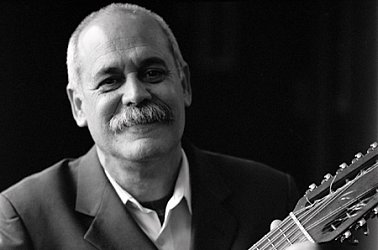
And in the case of speaking with Barbarito Torres of the Orquesta Buena Vista Social Club for Elsewhere, Wellington-based Rosina van der Aa says there was something else.
“There was a rhythm to the way he spoke, a repetitiveness, that was very musical, " she says. "It was lovely to listen to -- a thousand times as I tried to get [the translation] right . He was also very funny.”
Van der Aa – who lived in Latin America for 10 years and met her husband Rafael in Cuba – not only has a connection with the country and language of Cuba, but also the music. She manages their Cuban dance and music business CubanFusion, including Rafael's dance classes and performance troupes (Cazino.Com and El Ciclón Cubano), his bands (Madera Fina, Calle Cuba and MafereFUN Yemaya), and has been deeply involved with Cuban dance and cultural events in Wellington.
So who better to talk with Torres (who plays laud, traditional Cuban lute) than her?
Elsewhere provided the starter questions but van der Aa steered the conversation, and so was in a position to embellish and extend the discussion when speaking with 58-year old Torres who came to global attention with the Afro Cuban All Stars and was there right at the start of the Buena Vista Social Club.
He is also there at the end too, because the BVSC is on its farewell tour and make its first and last New Zealand appearance at this year's Womad in Taranaki.
Elsewhere started with asking him what he and the others might do when they get back home to Cuba.
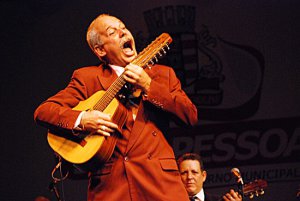 “Well, for example in my case I have
my own project, which I have always had going, for the past 23
years,” he says. “I am the director of my own orchestra, where my
sons, wife, my sister are members and everyone else who is there is
like my sons and brothers to me.
“Well, for example in my case I have
my own project, which I have always had going, for the past 23
years,” he says. “I am the director of my own orchestra, where my
sons, wife, my sister are members and everyone else who is there is
like my sons and brothers to me.
“We are like one big family. We’ve toured to the States a lot, to Brazil a lot. We have just finished recording a CD right now.
“I will continue with my various projects, continue with my various projects that I have doing at the same times as the BVSC projects and my own projects, my solo projects.
“Siempre hay que trabajar” [You've got to keep going/working]
And the others?
Bueno, mira (Well, look). Yes, work/play music. Record as well when we are asked to record. It’s not that the Buena Vista is over definitively. One day we could get together to play somewhere if necessary. It’s not that the Buena Vista is over definitively. We will still see each. We are still going spend time together.
I imagine you are like family after so many years touring together?
Exactly, we are like family.
I thought this was the last tour, that Buena Vista as such will not continue?
Bueno, this depends on the managers. I am really just telling you what they tell me. If we have to go on tour, we’ll go on tour. If we have to stop, we’ll stop. When they tell us we have to work, we’ll work. This depends on the managers.
I would like to ask something personal: Do you have one particular memory of the very great Ibrahim Ferrer which will always stay with you?
Well, the memories I have are many. The great honour it was to work with these señores (men), with Ibrahim [the singer who died in 2005], Compay Segundo [singer, died '03], Puntillita [singer, died '00] and Pío Leyva [singer, died '06]
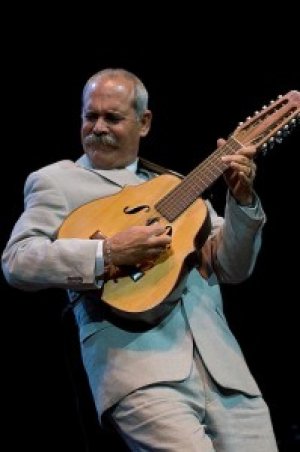 All these men, who were so well known
here in Cuba, so much older.
All these men, who were so well known
here in Cuba, so much older.
To work with Cachaito López [bassist, died '09], Guajiro Mirabal [trumpet] and Rubén González [piano, died '03] . . .It has been a pleasure, more than a pleasure to work with these men.
And I 'nourished' myself, fed off them, because remember I was the youngest at that time.
I would have never believed that I would come to work with all these people, who were already so well known, already so famous.”
But any special moments, something that you remember about them, of Ibrahim or of Ruben?
Of Reuben, yes. I have been an admirer of Ruben always.
Reuben used to be in an orchestra that was called Orquesta Jorrín. [Referring to the orchestra headed by Enrique Jorrin, in which Gonzalez played for 25 years from '62 and which he briefly lead after Jorrin's death in '87.]
It was a 'typical' orchestra [in that it had violins] and as a boy I used to go up to the stage to watch Reuben play. I’d put myself next to the piano and watch him as he played. He was a genius. He was always a genius.
I have also seen him play. When I used to live in Santiago de Chile I saw the BVSC twice and Reuben was there for the first concert, which was at the Teatro Municipal. I distinctly remember watching him play. It was a real pleasure, an honour to watch him play.
Si, bien. The other [memory] was Guajiro Mirabal who always has been the best trumpet player Cuba has had. At 82 years he’s still playing.
The best thing that has happened to me in my life is to have work with these men.
We are even neighbours in Cuba. One family.
We live in changing times and Barak Obama has reached out to Cuba for some kind of political reconciliation. For you personally, what do you think that might mean in the next two years?
It’s great from the point of view we can now go and work [in America] without problems. We’ve had some problems in the past. We’ve got in. We’ve been able to get in all this time, but with difficulties.
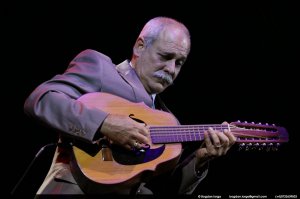 With the possible influx of American
tourists, how do you see that might change the Cuban musical scene?
With the possible influx of American
tourists, how do you see that might change the Cuban musical scene?
We musicians work for the Left, for those from the Right, for those from the Centre, and if they like us they clap for us. Doesn’t matter if they are from the Left or the Right. Music is a language, independent of politics.
Cuban music is more diverse than outside people might think. It is not all older people playing traditional music . . . but there is vibrant hip-hop and rock scene in and around Havana.
Yes, yes.
And Salsa?
In Cuba they do a style [of Salsa] which is called 'Timba', examples are Los Van Van and Havana d’Primera, 'danceable' music. It’s what we call 'musica bailable contemporana' [contemporary danceable music] - Timba. In Cuba they do good jazz, Latin Jazz. In Cuba they do rock, Cuban rock specifically. In Cuba they do a lot of music of various styles. They do a lot of classical music.
“Cuba is a [musical] power, amongst the most powerfully [musical] countries in the world.
What do you think about other styles, or do you only like traditional music?
I do everything, I play everything. I like to play all sorts of music and I listen to all sorts of music. I am a musico muy integral [very well rounded/whole musician]. If I have to play classical music, I do it. In fact I do.
I do a bit of Latin jazz as well, I do a bit of country music, I do a bit of Son, I do a bit of Cha Cha Cha. I love Rumba.
If there is one message you would like to send to the New Zealand audience, which has never seen Buena Vista, what might that be?
The saludo [salutation/message] that I send is that when we are there that they receive us with much kindness. We will play from the heart for them, and I know it will not only be a pleasure for them.
But also for us.
Elsewhere is indebted to Rosina van der Aa for not just her translation skills but in the preparation of this article and the enthusiasm she brought to what proved to be a time-consuming project. The CubanFusion website for her and Rafael's music, cultural events and dance classes is here.
For more on the Buena Vista Social Club and its artists at Elsewhere see here.
For information on ticketing and other details about the 2015 Taranaki Womad (March 13 - 15) go here

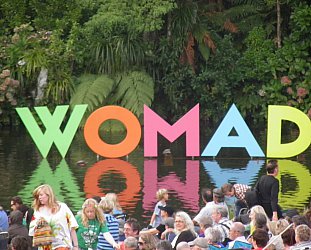
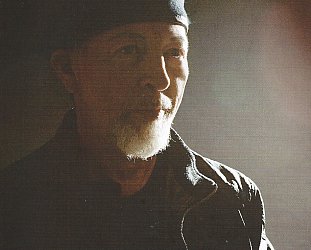
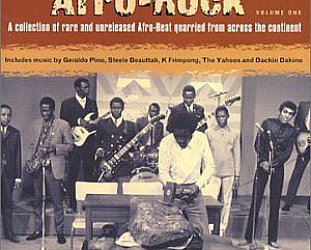

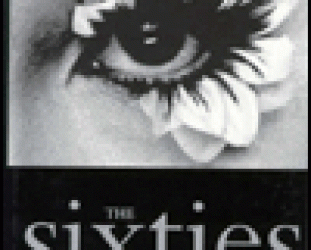
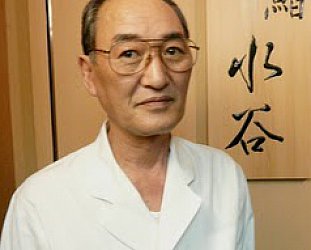
post a comment